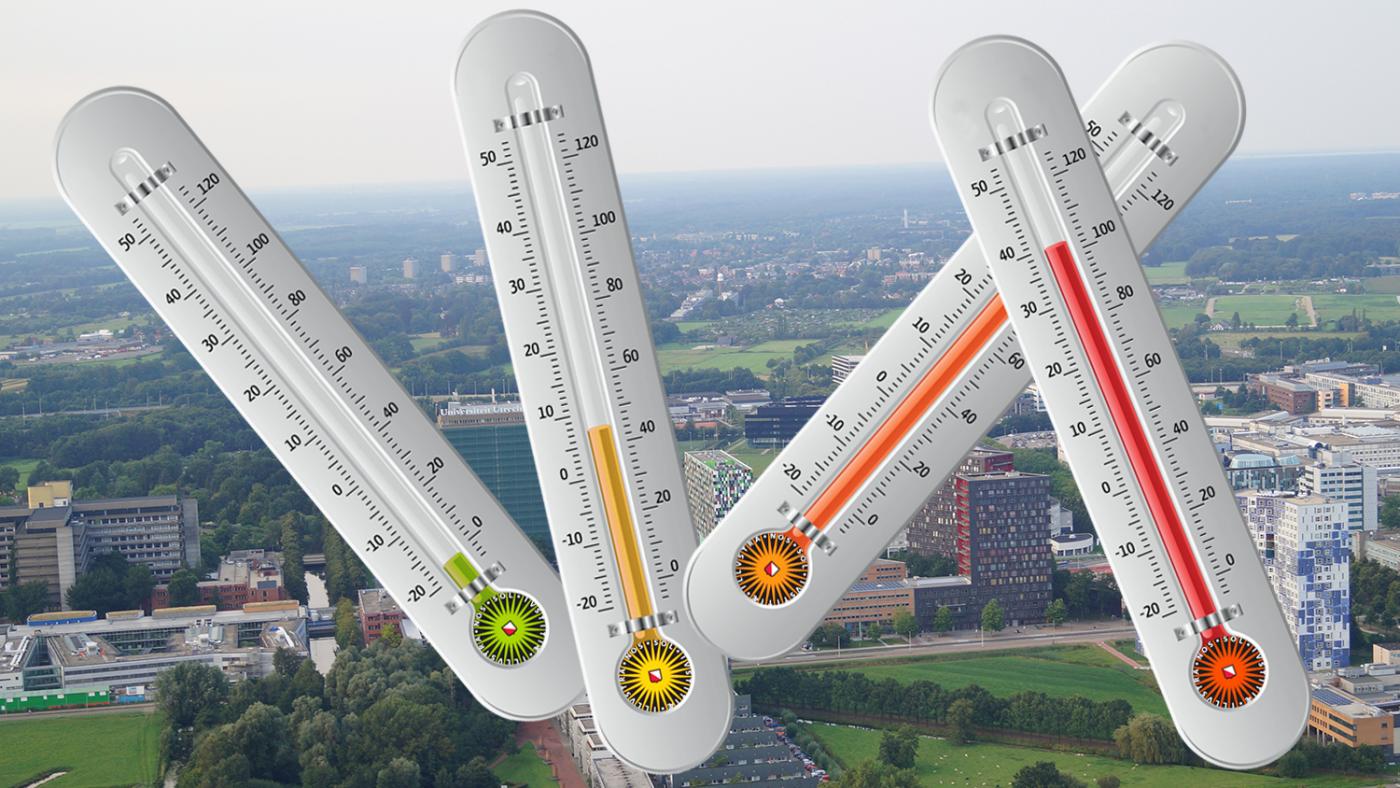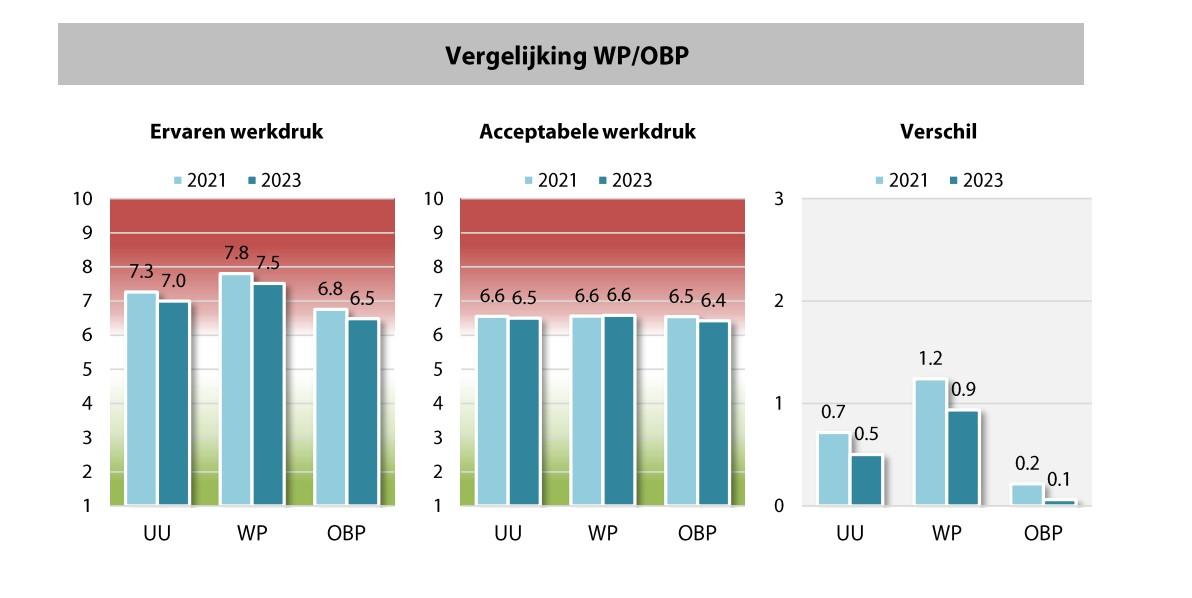2023 Employee Survey: mostly satisfied
Work pressure diminishes somewhat at UU, but remains too high

UU's employees evaluated the university with a 7.8, the same grade as two years ago, according to the 2023 Employee Survey, a survey conducted every two years about how satisfied UU employees are with their jobs, work environment. Those working in corporate jobs graded the university a 7.9, while scientific personnel gave it a 7.7.
In total, 55 percent of the almost 8,600 people working at UU filled in the questionnaire, two percent more than in 2021. Corporate personnel were more likely to reply than those working at the faculties, while almost three-quarters of those working at the university's libraries answered the questions.
Last week, all UU's employees received a link to read the results in full. Apart from the university-wide results, they could also read the results about their own category (corporate or scientific). In addition, an analysis of the takeaways was published online last Wednesday (accessible only to those with a Solis ID, Ed.). This analysis points out that results may differ not only according to category but also to function. For example, temporary lecturers and postdocs tend to evaluate more aspects negatively compared to employees in other roles.
Satisfied
On average, UU employees find their job just as pleasant and inspiring as two years ago, even when evaluating possibilities for growth and their collaboration with colleagues and managers. Not much seems to have changed.
All aspects evaluated got a score between 3.5 and 4.0 out of five. Compared to other Dutch universities running similar surveys, UU's results are more positive practically across the board. The university fairs particularly well in terms of "collegiality" and "social support from colleagues".
The university also gets a good score as an employer, although the grade is slightly lower than the one obtained last time around. In 2021, the average grade was 7.6 and now it is 7.4. The drop can be attributed to lower scores coming from the corporate offices. Scientific personnel is just as satisfied as two years ago.
Work pressure drops moderately
One of the main takeaways of the 2023 survey is that work pressure seems to have diminished somewhat for the average UU employee. It's a small difference but the results were better in all questions related to work pressure: employees are now more likely to feel as though they have enough time for all their tasks and less likely to worry about their jobs while on vacation.
The possibility to work from home more often has certainly had a positive effect on the perceived work pressure. Staff members working in a "hybrid" way have been working from home more than 40 percent of the time. This flexibility has been particularly positive for corporate employees when it comes to work-life balance, although it tends to loosen up the bonds between colleagues.
In addition, the survey reveals that scientific personnel tends to be much more negative about work pressure and stress, compared to corporate staff members. Although all UU workers tend to think that work pressure is higher than acceptable, there is a significant difference between corporate and scientific employees. On a scale of 1 to 10, researchers tend to think that work pressure is acceptable up to 6.6, while in practice they evaluate their work pressure as a 7.5.
The results of this part of the survey can be interpreted as "neutral", according to the methodology used. On most questions regarding workpressure and stress, UU's grades were just as good or better than other universities. The perceived work pressure in Utrcht is the lowest in the country, as is the difference between "acceptable" and "real" work pressure.

Inappropriate behaviours
Still according to the 2023 Employee Survey, almost a third of UU's employees witnessed inappropriate or abusive behaviours in the workplace. However, the percentage of respondents who were targeted by such behaviours diminished somewhat to 12.3 percent. "Gossip" and "power abuse" were the most cited forms of inappropriate behaviour.
When employees witness this type of situation, they tend not to say anything (answer given by 51.9 percent of respondents) and, if they are the victims, they tend to do it even less (43 percent). In most cases, the reason for this is that the behaviours in question are not considered "that serious" but a significant number of respondents refrain from reporting because they fear repercussions or don't want to damage their relationship with one or more colleagues.
Talking to the team
Aletta Huizenga, director of Human Resources, says in a message posted on the Intranet that she is happy with the increased number of respondents this year. According to her, UU's scores are better in almost all aspects, compared to other universities that carry out similar surveys.
She underscores, however, that UU should still take action to reduce work pressure. "Social safety is another topic which deserves our close attention." She also stresses that the idea behind this survey is that managers talk to their teams about the results, looking for ways to improve. "But also to keep up the good work in the aspects where they're good at and they can be proud of. After all, the positive things should be named too."